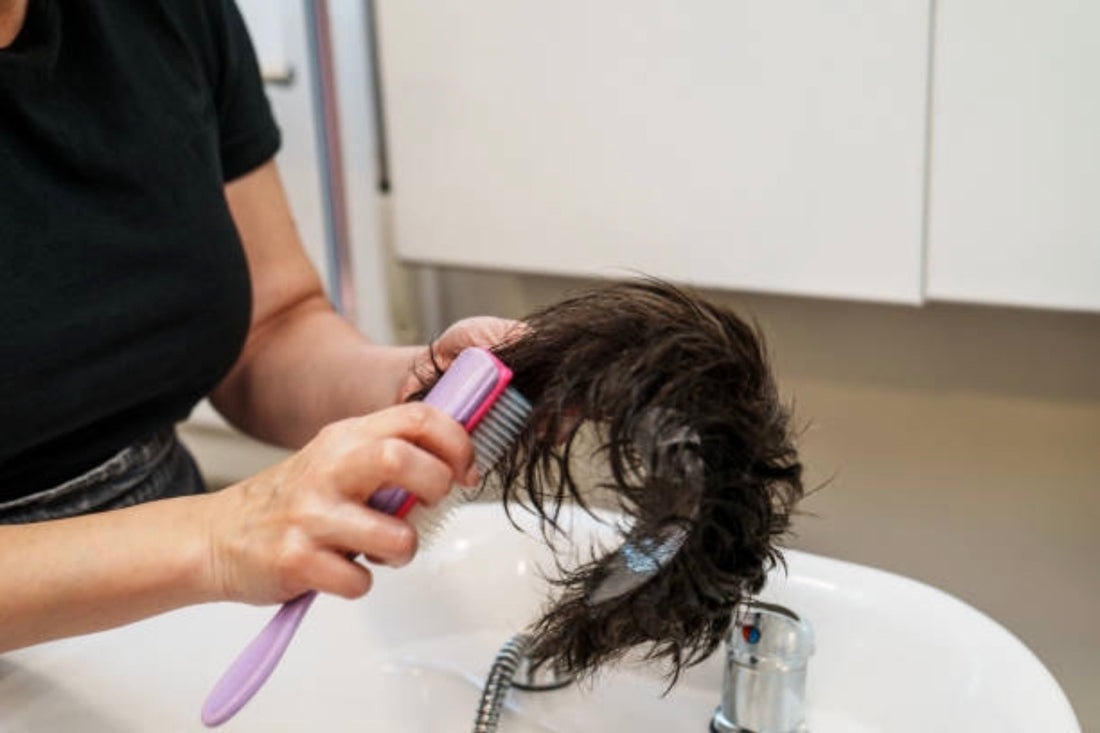Frontals and closures have revolutionised the world of hair extensions and wigs, offering a seamless and natural look that has become increasingly popular. These hairpieces come in various sizes to cater to different styling preferences and coverage needs. In this comprehensive guide, we will explore the different sizes available for frontals and closures, providing tips and insights to help you make the right choice for your desired look.
1. What Are Frontals and Closures?
Before diving into the sizes, let's briefly define what frontals and closures are:
-
Frontal: A frontal is a hairpiece that covers the entire front of your head, from ear to ear, allowing for versatile parting and styling options. It typically measures 13x4 inches or 13x6 inches, but larger sizes are also available.
-
Closure: A closure is a smaller hairpiece that covers a portion of the top of your head. It's generally used to close off a wig or weave installation and offers limited parting options. Common closure sizes include 4x4 inches, 5x5 inches, and 6x6 inches.
2. Frontal Sizes
Frontals come in various sizes to accommodate different styling preferences. The most common frontal sizes are:
-
13x4 Inches: This is the standard frontal size, measuring 13 inches across the front hairline and 4 inches from the hairline to the back. It provides ample coverage and allows for deep parting and styling versatility.
-
13x6 Inches: A slightly larger option, the 13x6 frontal measures 13 inches across the front hairline and 6 inches from the hairline to the back. This size offers even more styling freedom and a broader parting area.
-
360 Frontal: A 360 frontal is circular and measures 22 inches in circumference. It covers the entire perimeter of your head, allowing for 360-degree parting and styling possibilities.
-
Full-Frontal: Some specialty frontals come in larger sizes, such as full-frontals that cover the entire top and sides of the head. These are ideal for bold and dramatic looks.
Tip: When choosing a frontal size, consider your desired hairstyle, the level of coverage you want, and your skill in styling and maintaining the frontal.
3. Closure Sizes
Closures are typically square or rectangular in shape and come in various sizes. The most common closure sizes include:
-
4x4 Inches: This is the standard closure size, measuring 4 inches in both width and length. It provides a natural-looking closure for many hairstyles and is relatively easy to install.
-
5x5 Inches: Slightly larger than the 4x4 closure, the 5x5 closure measures 5 inches in both width and length. It offers a bit more coverage and versatility for styling.
-
6x6 Inches: The 6x6 closure is a square closure that measures 6 inches on each side. It provides a more extensive closure area, making it suitable for various parting styles.
Tip: The size of the closure should align with the size of your install area and your desired parting style. Larger closures offer more versatility but may require more expertise to install.
4. Choosing the Right Size
Selecting the right frontal or closure size depends on several factors:
-
Hairstyle: Consider the hairstyle you want to achieve. If you plan to create deep parts, intricate styles, or high ponytails, larger sizes like 13x6 frontals or 6x6 closures may be more suitable.
-
Coverage: Assess how much coverage you need. If you want a natural-looking closure, a 4x4 closure may suffice. For a more comprehensive coverage, opt for larger sizes.
-
Skill Level: Your expertise in installing and styling frontals and closures can impact your choice. Smaller sizes are generally easier to work with for beginners.
-
Personal Preference: Ultimately, your personal style and preferences play a significant role. Experiment with different sizes to find what suits you best.
5. Maintaining Your Frontal or Closure
Regardless of the size you choose, proper maintenance is crucial to ensure the longevity of your frontal or closure:
-
Gentle Handling: Treat your frontal or closure with care, avoiding excessive pulling, tugging, or combing.
-
Cleaning: Clean your frontal or closure regularly using mild shampoo and conditioner. Avoid harsh chemicals or excessive heat.
-
Styling: Limit the use of heat styling tools to prevent damage. Use heat protectants when necessary.
-
Storage: Store your frontal or closure on a mannequin head or wig stand to maintain its shape and prevent tangling.
-
Professional Help: Consider consulting a professional hairstylist or wig specialist for installation and maintenance advice.
In conclusion, understanding the different sizes available for frontals and closures is essential for achieving the desired look and coverage. Your choice should align with your hairstyle, coverage needs, skill level, and personal preferences. With the right size and proper maintenance, your frontal or closure can enhance your hairstyle and provide a seamless and natural appearance.




















